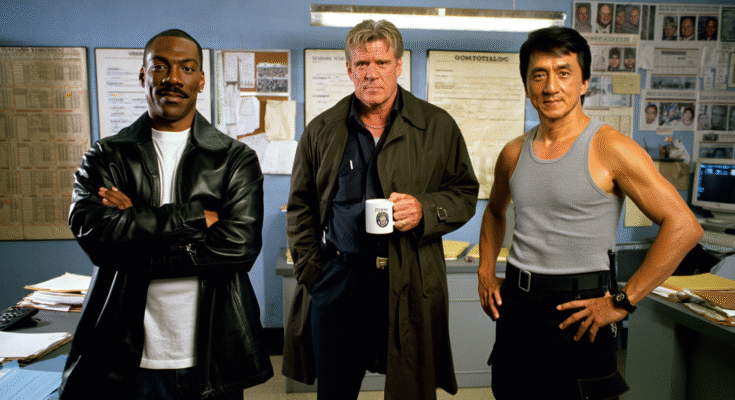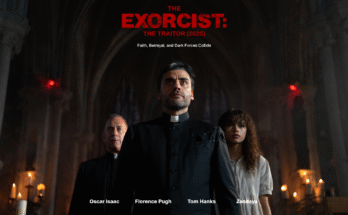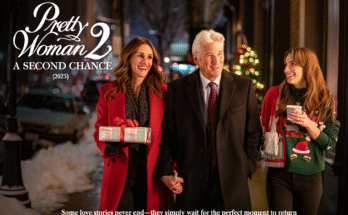When 48 Hrs. hit theaters in 1982, it redefined the buddy-cop formula — gritty, fast-talking, and unapologetically chaotic. Over forty years later, 48 Hours 2 (2025) roars onto the screen with the same swagger but a brand-new engine. Eddie Murphy and Nick Nolte reunite for one last mission, joined by Jackie Chan in a move that doesn’t just refresh the formula — it reinvents it. The result? A gritty, hilarious, and adrenaline-soaked return that honors the original’s streetwise DNA while pushing the genre into overdrive.
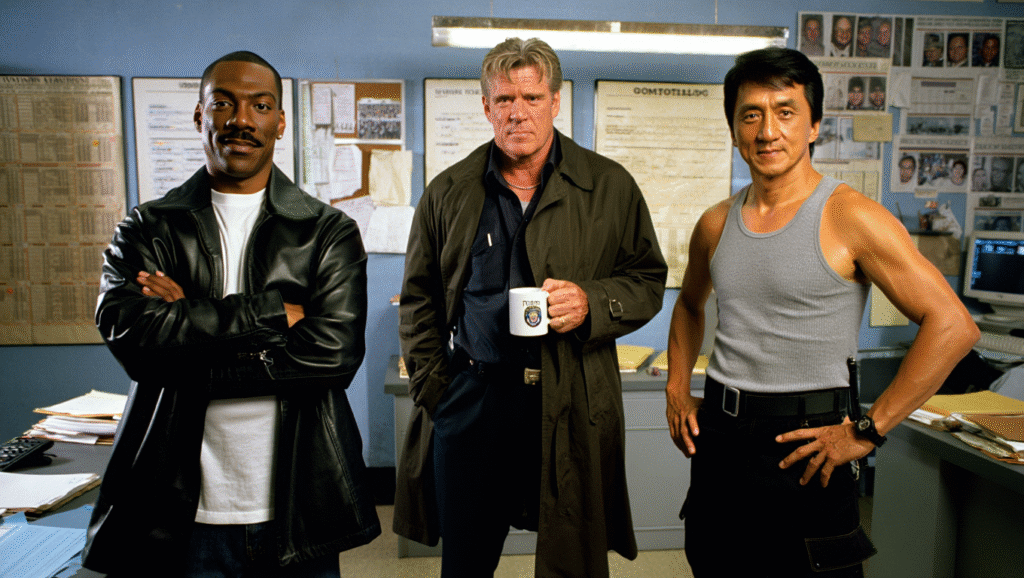
Right from the opening scene — a pulse-pounding bank heist gone wrong — the film announces that it’s not here to coast on nostalgia. Director Antoine Fuqua brings a sharper edge and a cinematic intensity that feels distinctly modern, yet he never loses sight of the sharp banter and mismatched chemistry that made the first film a classic. The streets are meaner, the explosions louder, and the humor darker, but the heart of 48 Hours — two men clashing, bonding, and barely surviving together — still beats strong.
Nick Nolte returns as Jack Cates, older, rougher, and just as ornery as ever. His grizzled delivery and world-weary presence give the film its emotional grounding. Nolte plays Cates not as a relic but as a man grappling with irrelevance — a cop who’s seen too much and trusts too little. When the city he spent a lifetime protecting begins to crumble from within, his only option is to call the one man who ever made the madness bearable: Reggie Hammond.
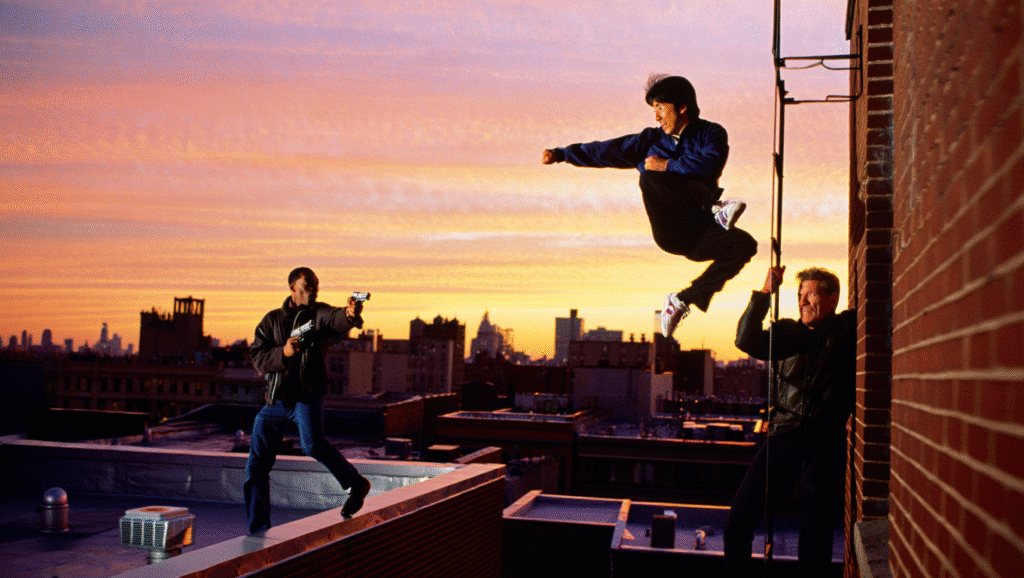
Enter Eddie Murphy, slipping back into Reggie’s skin with effortless brilliance. Time hasn’t dulled his sharp tongue or that signature smirk; if anything, the years have added a sly wisdom to his humor. Murphy steals every scene with the kind of magnetic energy that reminds audiences why he became a legend in the first place. His chemistry with Nolte is as electric as ever — equal parts friction and affection — their exchanges crackling with tension, history, and hilarity.
Then comes the curveball: Jackie Chan as Li Wei, an off-the-grid operative with a mysterious past and a code all his own. Chan’s arrival injects the film with kinetic energy, his trademark physical comedy and stunt choreography elevating the action to new heights. Watching Chan’s graceful combat collide with Murphy’s street smarts and Nolte’s brute-force policing is pure cinematic joy. The trio’s culture clash becomes the movie’s engine — every scene buzzing with humor, chaos, and unexpected camaraderie.
The plot, while familiar in structure, is executed with precision. A powerful syndicate is orchestrating high-profile robberies across the city, and the deeper the team digs, the clearer it becomes that corruption runs through the very system Jack once trusted. The screenplay weaves humor and tension seamlessly — one minute the trio’s bickering over breakfast, the next they’re in a bullet-riddled warehouse showdown. The tonal balance between grit and comedy feels organic, never forced.
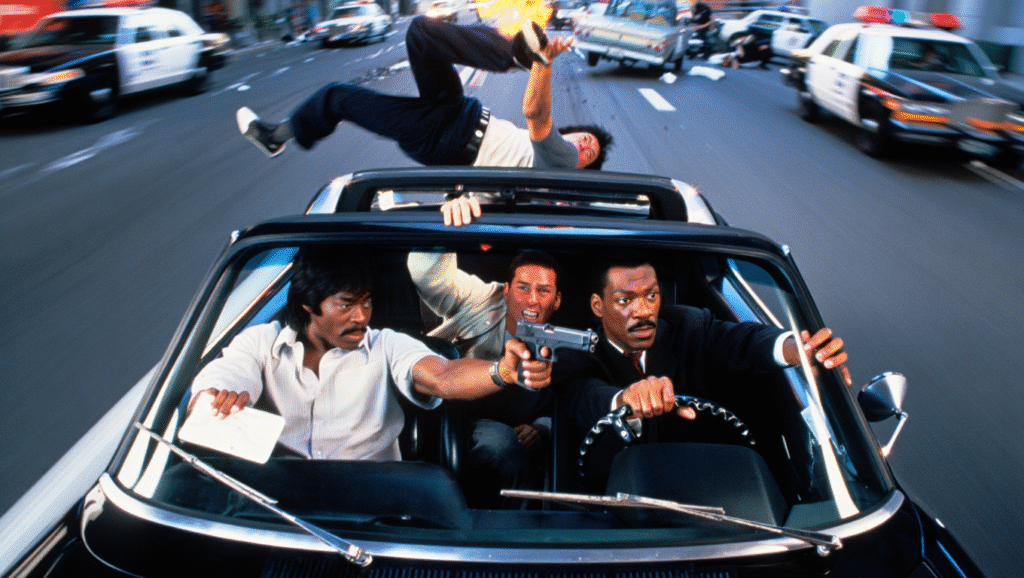
Action-wise, 48 Hours 2 is a masterclass in practical filmmaking. The stunts are raw and tactile — Chan performs jaw-dropping sequences that blend martial artistry with urban realism, while Murphy and Nolte’s rough-and-tumble brawls keep things grounded. A standout sequence atop a Los Angeles skyscraper showcases all three leads working in chaotic unison — it’s equal parts thrilling and hysterical, encapsulating the movie’s unique rhythm.
Beneath the noise, the film has something to say. 48 Hours 2 explores aging, loyalty, and the passage of time in a profession that chews up its heroes. Jack’s cynicism, Reggie’s hard-earned maturity, and Li Wei’s outsider philosophy form an unlikely meditation on survival and redemption. There’s genuine emotion beneath the wisecracks — moments of reflection that lend the film surprising depth without slowing it down.
Murphy and Nolte’s reunion is a triumph, but it’s Jackie Chan who gives the movie its pulse. His character, at once comic relief and emotional glue, bridges generational and cultural divides with grace and humility. When he quietly tells Reggie, “In my country, we say the loudest laugh hides the biggest scar,” it lands as more than a line — it’s the film’s thesis in miniature.
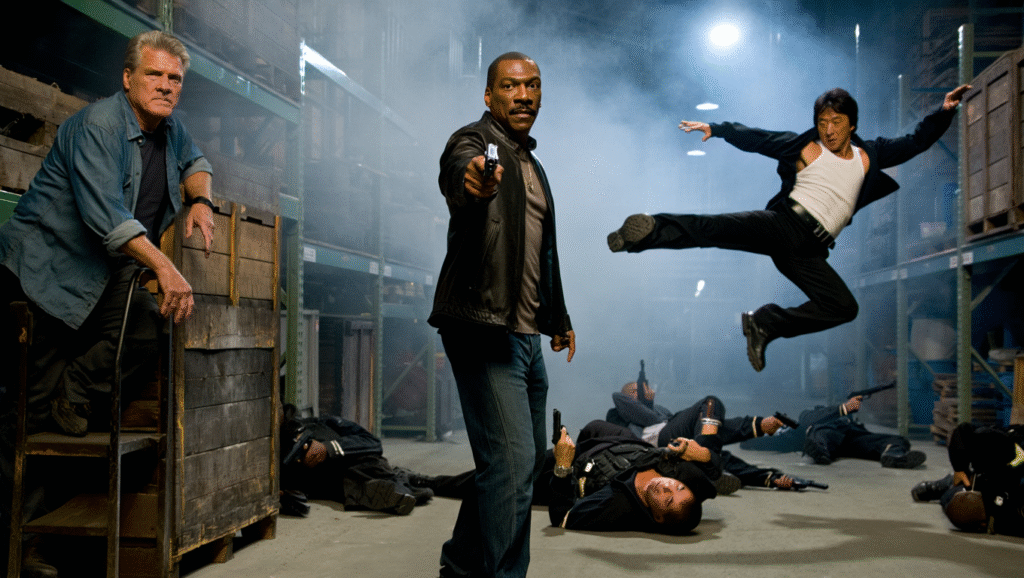
The supporting cast — featuring cameos from familiar faces and fresh villains — rounds out the world with grit and charm. The villain, a calculating kingpin played with chilling restraint, provides just enough menace to keep the story taut. Fuqua’s direction ensures the pacing never drags, balancing explosive set pieces with razor-sharp dialogue that keeps audiences hooked from start to finish.
By the finale — a furious, rain-soaked showdown on the docks — 48 Hours 2 delivers everything a sequel should: closure, spectacle, and soul. The last exchange between Jack and Reggie, drenched in blood and laughter, feels like a farewell both to these characters and to an era of buddy-cop storytelling that’s all but vanished.
In the end, 48 Hours 2 (2025) isn’t just a sequel — it’s a celebration of endurance, friendship, and the unfiltered chaos that happens when mismatched men find common ground. With its blend of sharp humor, gritty emotion, and blistering action, it reminds us that some partnerships never lose their spark — they just need the right amount of trouble to ignite it again.
